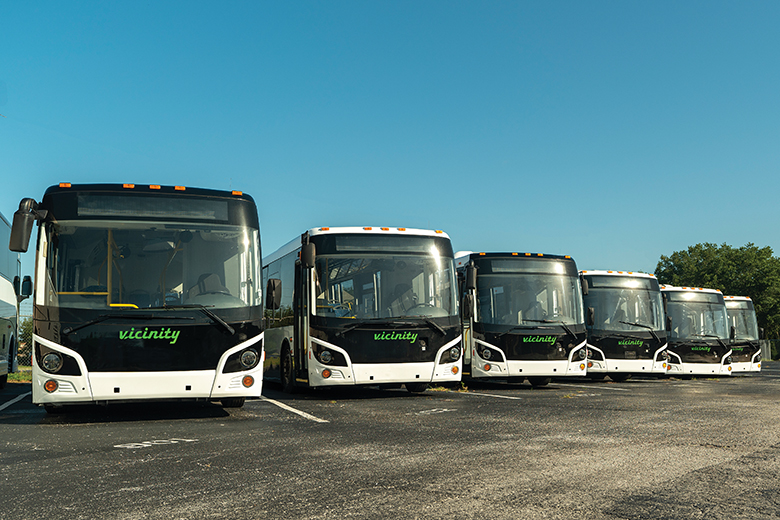
Leveraging its success in Canadian public transit, Vicinity Motor Corp. (VMC) is accelerating its reach into the U.S. market.
A leading provider of OEM transit buses to Canadian municipal transportation agencies and private operators, Vicinity Motor Corp. (VMC) in conjunction with its U.S. distributors including ABC Companies, is actively pursuing American public and private transit fleet operators. The company cites the surging popularity of smaller and cleaner vehicles in public and commercial transport as a key driver in its growth and expansion strategy.
As smaller, more efficient, and zero-emission vehicles gain ground in public and private sectors, VMC views alternative mobility as a critical factor in augmenting transit operations.
“Today on-demand transport options like ride sharing, last mile services, transit on demand, shuttle services and more, combined with fluctuating ridership is impacting public and private transit systems,” said William Trainer, VMC founder and CEO. “They must consider a variety of solutions in order to bolster their existing services. We see utilization of mid-size vehicles as an important tool in helping providers adapt their service to consumer demands.”
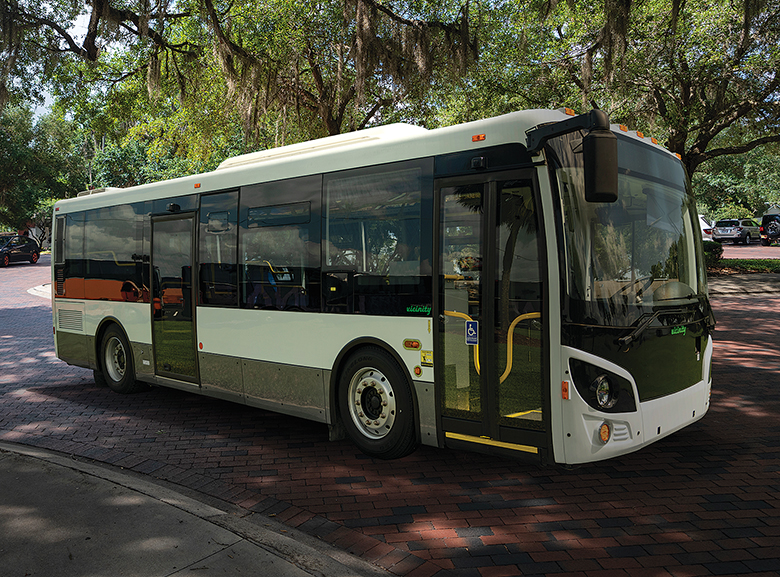
Innovating Mobility Since 2008
Since its inception in 2008, the VMC management team focused on carving out a very specific leadership role within the mobility industry. The decision to design and produce medium and heavy-duty, mid-range transit vehicles was directly driven by the desire of private and public operators for durable mid-size vehicles. Vicinity responded with a smaller, sustainably engineered, cleaner commercial product range that can offer multi-purpose flexibility in fleet service.
“Our Vicinity product line is designed to provide a true community mobility experience in a smaller footprint,” William continued.
The Buy America-compliant Vicinity product line is assembled in the U.S. and the company is currently in the final phases of construction on a new state-of-the-art production facility in Washington state. Offering clean diesel, CNG and electric transit models in 28 to 35-foot lengths, Vicinity buses are designed with accessibility and global responsibility in mind.
“Our models cost significantly less than a regular 40-foot transit bus, are more maneuverable, use less energy and can operate with a right-sized infrastructure reducing overall burden and increasing efficiency,” said Brent Phillips, senior director of sales. “They are purpose-built to fill the gap for agencies and private operators who wish to serve their communities with a truly reliable, sustainable transportation experience.”
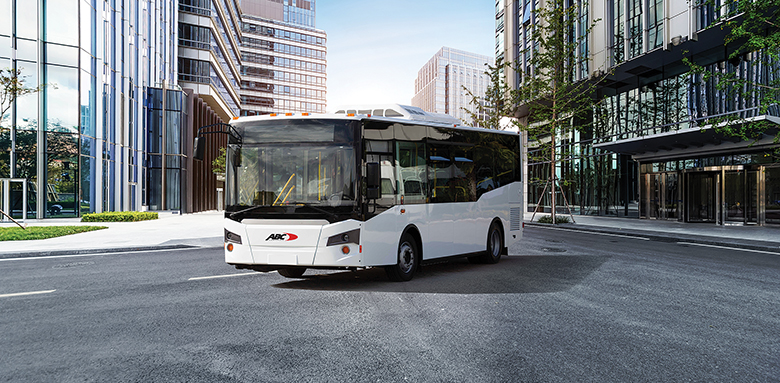
Best-in-class Vehicles
Vicinity buses offer users maximum performance and versatility via a range of heavy-duty, light-duty and special purpose vehicles to offer the ultimate in flexibility and functionality. Available in a variety of sizes, configurations, and propulsion systems, Vicinity low floor transit buses are designed for value and reliability from the ground up. They integrate high-quality, proven, and commercially available components, as well as industry standardized charging solutions for EV fleets. Vicinity buses have gone through the US Federal Transit Authority’s (FTA) Altoona testing and come through at the top of their category. This internationally recognized and rigorous testing, which entails 12 years and 500,000 miles of heavy-duty testing, placed the Vicinity mid-size heavy duty vehicles Best-in-Class for fuel economy, structural durability, and maintenance and repairs.
From the 28-foot Vicinity EV Lightning mid-size model to 30-foot and 35-foot Vicinity medium sized Classic Diesel/CNG heavy-duty buses, the product lineup offers scalability for a wide range of uses and integrates big bus looks and durability in a midsize design. Vicinity models are built for maximum versatility and easy maneuverability to support multiple mobility applications like community shuttles, paratransit, university shuttle services and more and can integrate into every transit garage, even the smallest. Additionally, Vicinity’s Optimal EV light-duty all-electric cutaway offers users a perfect solution for driving in smaller inner-city locations and paratransit applications. The Vicinity Optimal EV is an electric conversion of the Ford E450 chassis and utilizes the industry-leading Proterra high-power, high-density battery system. The VMC Optimal S1 features a low-floor entry for truly equal access. Optimal models position the battery between the frame rails for maximum protection.
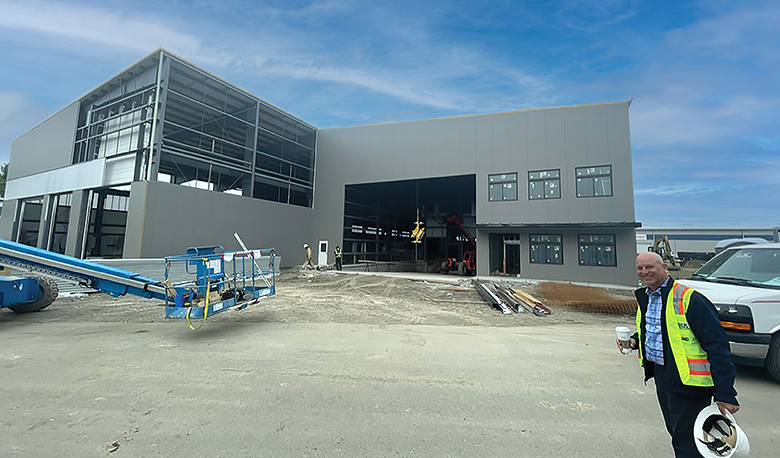
Competitive Advantages via Distribution Partnerships
Partnering with established distributors like ABC Companies has offered some key advantages to VMC – enabling VMC access to a broader customer base, and established customer relationships based on trust and ABC’s ability to provide service and technical expertise for the Vicinity product line.
“We focus and excel at producing a high-quality commercial vehicle,” said John LaGourgue, vice president of corporate development. “Having boots on the ground in established local markets and regions via our distributor relationships increases our ability to expand our footprint, and reach more and possibly overlooked prospects. It also enhances cost effectiveness and customer service. ABC has helped us to shape a ‘right-fit’ offering in their markets, which they support with high quality parts, service and technical expertise, while we’ve helped them build their knowledge base and expand their portfolio of offerings.”
Selecting distribution partners such as ABC, with their strengths and expertise, while delivering operational excellence are helping VMC cement its competitive advantage.
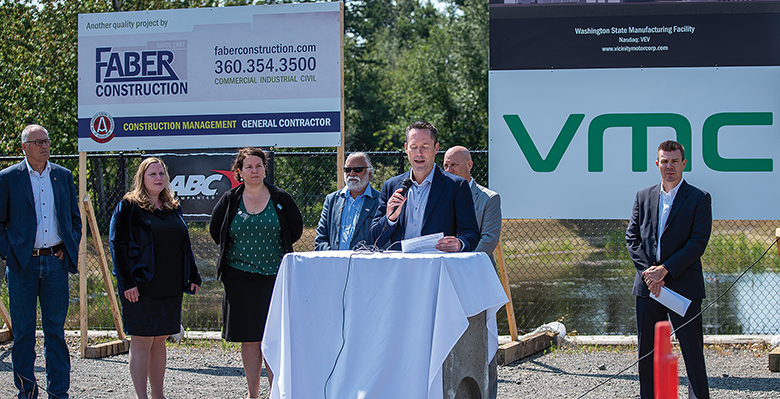
Right Sized to Ride Shifting Markets
As U.S. transit operations experience market shifts, and changes in ridership patterns and consumer demands and preferences, VMC continues to lock in long term relationships that focus on creating customer value.
“Markets are changing and product differentiation is blurring, customer expectations for product and service performance that are more demanding than ever,” Trainer said. “VMC is invested in creating advanced products that offer reliability and value to customers, and more importantly provide them with the right experience they need or anticipate to optimize their investment.”
Looking Ahead to Global Sustainability
In keeping with the company’s mission to lead the global transition to more sustainable transit vehicles in the private and public markets, the 30- and 35-foot Vicinity medium sized Classic Diesel/CNG heavy-duty buses will be offered in a fully-battery electric version. Like the light-duty Vicinity Optimal all-electric cutaway, the Classic will utilize the industry-leading Proterra battery system and will be available in late 2023.
And, the company will mark a major milestone with the completion of its first U.S. assembly plant for the company’s growing line of electric, CNG, gas and clean diesel vehicles. The facility is located in Ferndale, Washington, near the company’s Aldergrove, British Columbia, Canada location with easy access to port, rail and truck shipping and receiving facilities. Operations at the facility will include Buy America compliant manufacturing, pre-delivery inspections, research and development, as well as general technical work and servicing. The facility is expected to begin operation in the second half of 2022.
